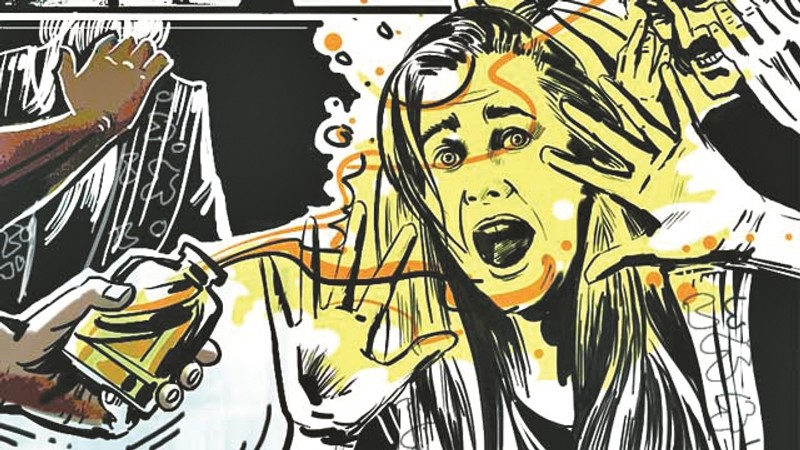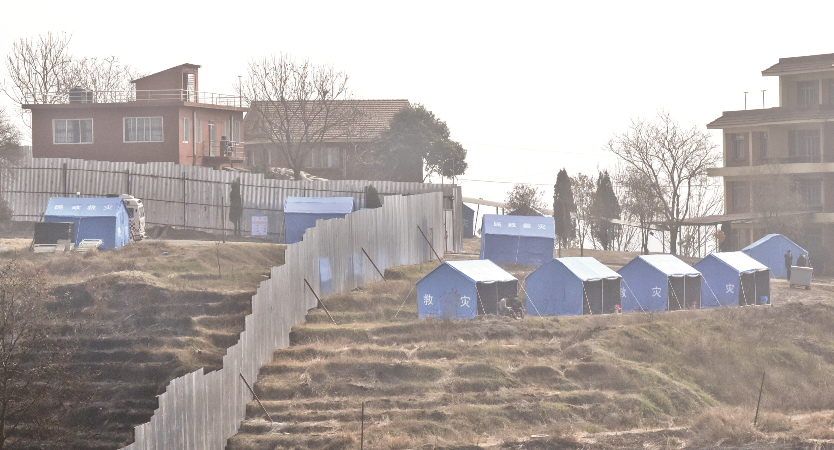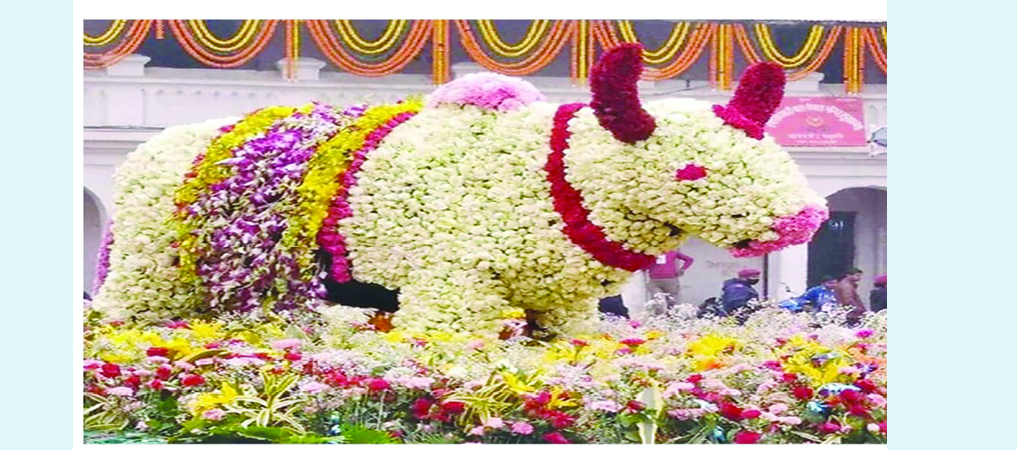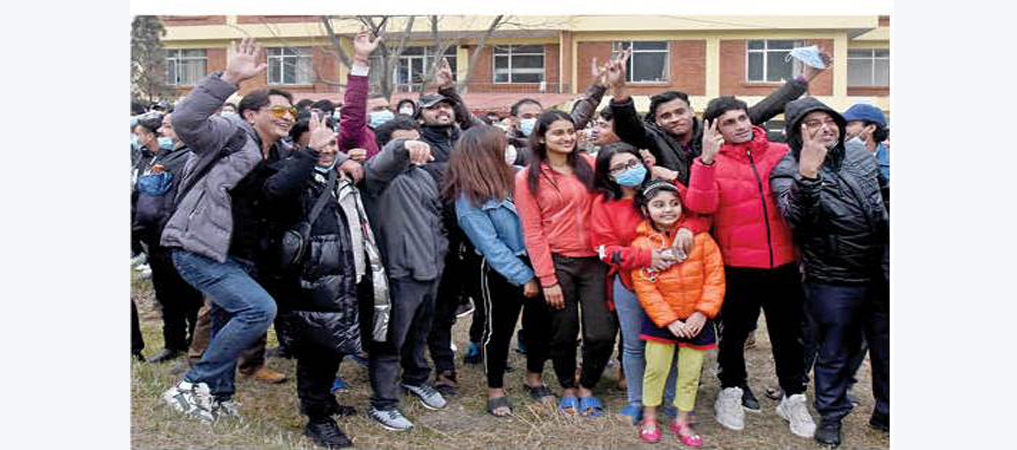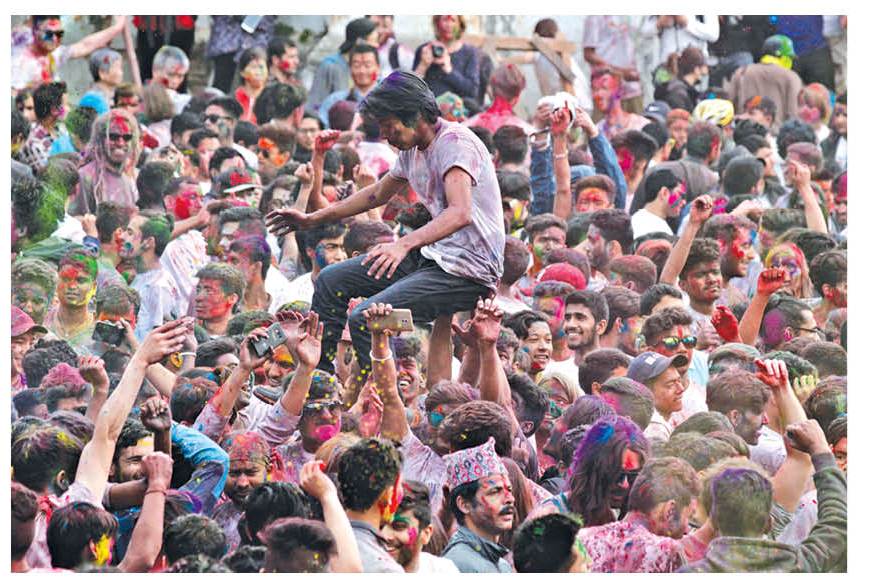Shun Personal Attacks
Sampada A. Khatiwada
The recent political development in Nepal has divided the ruling Nepal Communist Party (NCP) into two factions. While the Oli-led faction is in the government, the Prachanda-Nepal faction has been denouncing Prime Minister KP Sharma Oli's decision to dissolve the House of Representatives (HoR) by organising various protests.
The Prime Minister's decision to dissolve the Lower House of federal parliament is also drawing a mixed reaction from the public. Some are regarding it as apolitical, arbitrary, and unconstitutional while others are voicing that a fresh mandate from people is needed for good.
As the HoR dissolution is sub judice in the constitutional bench of the Supreme Court, it is for the judiciary to decide whether the act done by the Prime Minister was constitutional or not. But in the meantime, protests and demonstrations against the heads of state and government are being held under the leadership of various groups and political parties. It is sad to note that even President Bidya Devi Bhandari has been facing personal attacks.
Recently, some youths shouted slogans humiliating remarks against the President. The issue was also raised in the National Assembly by member Bimala Rai Poudyal. She said that personal attacks against the President on the basis of her gender or marital status was a disgrace for all the Nepali women.
It is to be made clear that Article 17 of the Constitution of Nepal, 2072 explicitly mentions that every citizen has freedom of opinion and expression and the freedom to assemble peaceably. However, the provision of Article 17 restricts acts contrary to public morality and decency and acts of defamation.
The fact that no government or political leaders can be kept on a pedestal cannot be overlooked. Their doings are open to criticism or even protests and demonstrations for that matter. But having said that, we, as responsible citizens of the nation, are limited by our culture, morality, and ethics to not defame or pass nasty comments on anyone, be it the head of state or the general public.
Not only the slogans or a placard used in the protests, but the social media is also an equally mean place to be at. The humiliating, malicious, and personal comments on social media platforms, based upon one's gender, background or personality do not spare the political leaders.
The gender, marital status or personality of politicians is disassociated with their ability to govern. While one's ability to govern or lead the nation can be questioned, their personal relationships should not be targeted on any ground.
It is often said that politics is a dirty game. However, dirty remarks or comments irrelevant to the political scene should not be made on any political leader, be s/he from the ruling party or from the opposition, with malicious and defamatory intent. Constructive criticism against the leaders regarding their governing qualities is one of the assets of democracy but making irrelevant personal attacks against them is below the belt.
Recent News

Do not make expressions casting dout on election: EC
14 Apr, 2022
CM Bhatta says may New Year 2079 BS inspire positive thinking
14 Apr, 2022
Three new cases, 44 recoveries in 24 hours
14 Apr, 2022
689 climbers of 84 teams so far acquire permits for climbing various peaks this spring season
14 Apr, 2022
How the rising cost of living crisis is impacting Nepal
14 Apr, 2022
US military confirms an interstellar meteor collided with Earth
14 Apr, 2022
Valneva Covid vaccine approved for use in UK
14 Apr, 2022
Chair Prachanda highlights need of unity among Maoist, Communist forces
14 Apr, 2022
Ranbir Kapoor and Alia Bhatt: Bollywood toasts star couple on wedding
14 Apr, 2022
President Bhandari confers decorations (Photo Feature)
14 Apr, 2022





